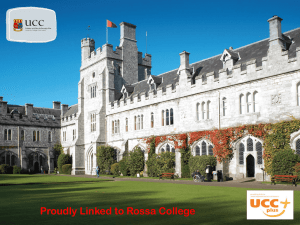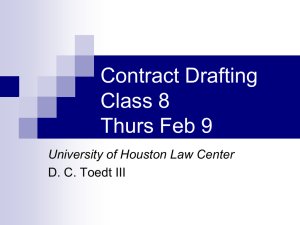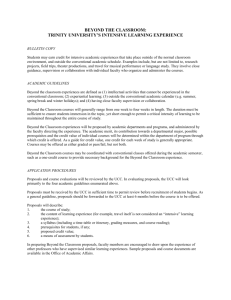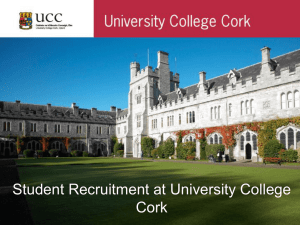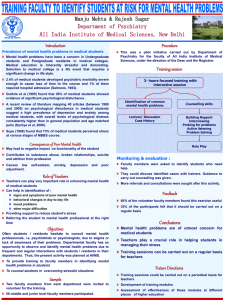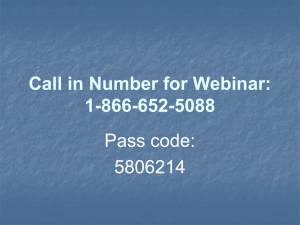MA in Applied Psychology (Guidance Counselling)
advertisement
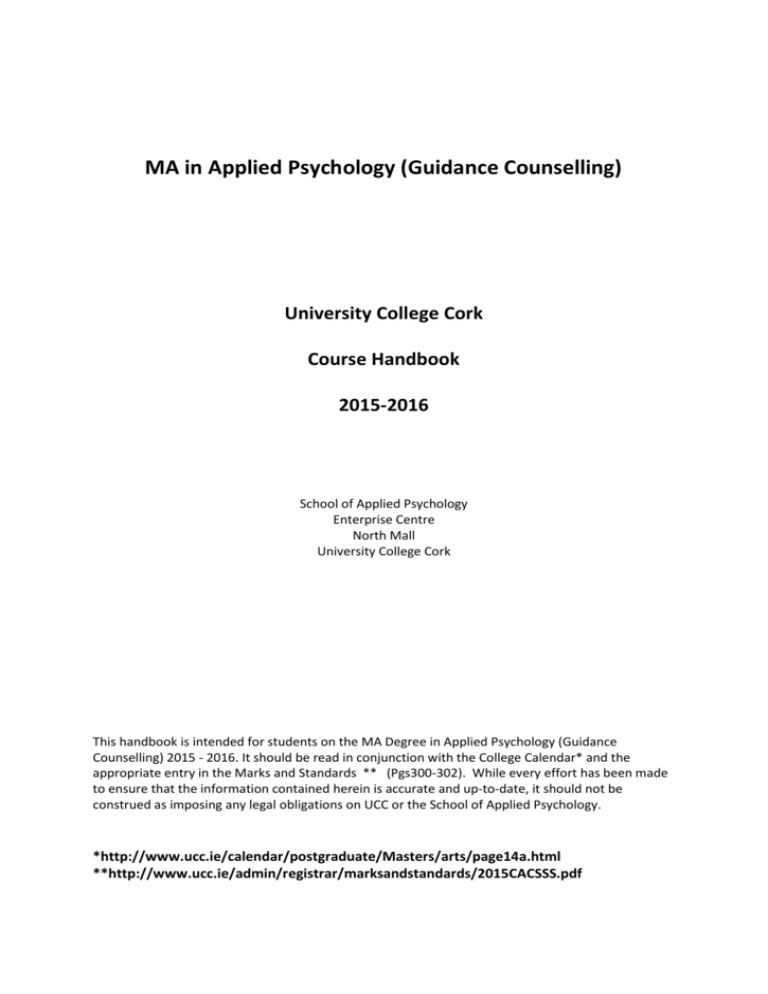
MA in Applied Psychology (Guidance Counselling) University College Cork Course Handbook 2015-2016 School of Applied Psychology Enterprise Centre North Mall University College Cork This handbook is intended for students on the MA Degree in Applied Psychology (Guidance Counselling) 2015 - 2016. It should be read in conjunction with the College Calendar* and the appropriate entry in the Marks and Standards ** (Pgs300-302). While every effort has been made to ensure that the information contained herein is accurate and up-to-date, it should not be construed as imposing any legal obligations on UCC or the School of Applied Psychology. *http://www.ucc.ie/calendar/postgraduate/Masters/arts/page14a.html **http://www.ucc.ie/admin/registrar/marksandstandards/2015CACSSS.pdf WELCOME Welcome to the MA in Applied Psychology (Guidance Counselling) MAAP(GC). These wise words of Dr Ronny Swain, former Course Director, serve as an excellent introduction to the programme. “The philosophy of the course is humanistic and person-centred, which entails respect for your autonomy as a learner and dignity as a person, human engagement between teachers and trainees, and integration of theory, practice, experience and reflection. Such lofty aspirations must occasionally fail to be met, but we hope that most of the time we will achieve them. If we are successful, we will have modelled for you a human way of being professional that will benefit both you and your clients. We aim to train you in the knowledge, skills and personal attitudes necessary for practice as a guidance counsellor. Achieving these aims will require a lot of commitment and hard work on your part, but fun is not excluded! The class is relatively small and there is a great deal of staff-student and student-student contact. We hope that you will find working intensively with us and with each other to be rewarding. This Handbook is intended to give you all the basic information about the course in a userfriendly form. It is an important document. Keep it safe and refer to it often. Have a good year!” 2 The Role of the Guidance Counsellor “You cannot teach a person something he does not already know; you can only bring what he does know to his awareness.” Galileo The essential role of the guidance counsellor is to facilitate a person to make an optimal career decision in the context of their strengths, talents and virtues. This is achieved through the use of career information and objective psychometric data on the one hand, and through the use of counselling skills to foster awareness or mindfulness, and selfknowledge in the person such that they can make these decisions in the context of their unique bio-psychosocial circumstances. This is not to say that guidance counsellors will not encounter and be able to form professional alliances with individuals in distress. However, in working with these individuals guidance counsellors need to be mindful of the professional limits of their role, as well as their competence within this role. There are situations where it is not appropriate to intervene with individuals who are distressed, for instance some individuals do not respond well to psychological debriefing. There are other situations where distress is such that it may indicate mental health difficulties. In these circumstances the appropriate referral could be to a registered psychologist and their GP. An outcome of this training, which is an initial training, is to define this scope. In this context, supervision is a vital and necessary tool whereby professionals can reflect on an ongoing basis on the boundaries and scope of their role and competencies within that role. Of course, as guidance counsellors progress from an initial training to advanced professional training supervision will help them to integrate these increased competencies into their professional roles. Personal Development This course consists of knowledge and skill development. Personal development is also a component of this course. The Department of Education and Science recommends that students on initial training courses may include personal counselling as part of personal 3 growth and development. The Institute of Guidance Counsellors recommends that personal counselling should include twelve hours of personal counselling. We recommend that, as part of your personal development, you work with a registered psychologist or fully accredited counsellor or psychotherapist on a one-to-one basis. Check the listings on the Psychological Society of Ireland website (www.psychologicalsociety.ie), Irish Association for Counselling and Psychotherapy (www.irish-counselling.ie ) or the Irish Association for Humanistic and Integrative Psychotherapy http://iahip.org/ . We will record the hours that you have completed so we can include them in any reference we write for you. Where to find us Distillery Fields is about 10 minutes walk from the main campus if you use the walkway and footbridge over the river which is located opposite the main gate. Please note that this walkway is normally closed during the hours of darkness (at around 16.30 in winter). Alternatively you can walk along the Western Road and then turn left going towards the Mercy Hospital. The Distillery Fields Campus is just over the footbridge having left the Mercy Hospital to your right. You will find a map at http://www.ucc.ie/en/apsych/admin/findus/ Main Office opening hours: 09.00-11.00 and 14.00-16.00 Term Dates Academic Year 2015-2016 Semester 1 Semester 2 7 September - 27 November 2015 11 January – 15 April 2016 Review Week: 30 November – 4 December Review Week: 18 – 22 April 2016 2015 Exams: 7– 18 December 2015 Exams: 25 April – 6 May 2016 4 Academic and Support Staff The School of Applied Psychology administers the course in cooperation with the School of Education and professional part-time staff. Course Director: Nicola Barry BA, MA in Counselling Psychology, Reg. Psychol., Ps.S.I T: 021 4904517 nicola.barry@ucc.ie Administrative Support: Mags Creedon T: 021 4904604 margaret.creedon@ucc.ie School Technician Mr. Pat O’Donovan Pat.odonovan@ucc.ie T: 021 4904508 The rest of the team are: Peadar Crowley, Registered Educational Psychologist Dr Samantha Dockray, School of Applied Psychology Louise Foott, Arts-based Facilitation Trainer & Lecturer, Free-lance and CIT Mai Smiddy Kerins, Guidance Counsellor, Ashton School Alex Kingston, Guidance Counsellor, Deerpark CBS Mary McCarthy, Careers Service UCC/CIT Dr Joe Moynihan, School of Education Frank Mulvihill, Guidance Counsellor, Choláiste Chriost Rí Inge Nieuwstraten, School of Applied Psychology Anna O’Reilly-Trace, School of Applied Psychology Dr Marcin Sczcerbinski, School of Applied Psychology 5 School Facilities Photocopying facilities are available on the ground floor of the Enterprise Centre during office hours. Photocopying cards can be purchased from the same location. As stated above, the office is the first point of contact for all queries in relation to modules, timetables, tutorials and submission deadlines etc. Please note however, that the office does not supply any items of stationery to students. There are also computer facilities available to students on the first floor of the School building but please note that hours available are restricted by the teaching which also takes place in the computer lab. The timetable for the lab is posted on the door. There are a number of computers available for use for all students of the School of Applied Psychology. These computers are located in the Computer Centre on the first of the School. There are also five computers available to MAAP students – these can be found in the taught Masters student room which is in the CSHU on the ground floor of the School. UCC open access computer labs are available for student use: Boole basement, Block A, Level 4 Food Science building, 3.15 & 3.16 O’Rahilly Building and Aras na MacLeinn. If you have problems with your e-mail please contact the computer centre at ext. 2622 or 1886 or on studentIT@ucc.ie. Parking There is absolutely no parking for students at the School of Applied Psychology, UCC. Provision for students parking is at the following: Visitor/short stay car parks at Perrott’s Inch and Perrot’s Avenue. €1 per hour for the first two hours this then rises to €1.50 for the next four hours and then rises again to €2 for the next 6 hours. For details of UCC’s Park and Ride service see: http://www.ucc.ie/en/build/commuting/parkandride/ Further queries about parking facilities for students can be directed to General Services on 021 490 2264 or 490 2265. 6 Keeping in touch Your email address, Blackboard and other means of keeping you informed • As you know your email address consists of your 9 digit student number with the extension @umail.ucc.ie (i.e., 115******@umail.ucc.ie ). It is vital that you log in to your student email on a regular basis and keep it active as it is the School’s principal means of staying in touch with you (in relation to timetable changes and other important notices and information). • Important information on course content is held on the Blackboard system at: http://blackboard.ucc.ie and is regularly updated by your lecturers. You will have been provided with details regarding Blackboard on registration. Further details on logging on to Blackboard can be found in the Learning Technologies Guide to Blackboard at http://www.ucc.ie/en/sit/faq/faqblackboard/. Please note that any difficulties you experience with logging on should be addressed to the Computer Centre Student Helpdesk at sit@ucc.ie. The Blackboard system is managed by the Learning Technologies Unit which can be reached at blackboard@ucc.ie or on 021 490 3965/3966. The School website is at http://www.ucc.ie/en/apsych/. • It is all students’ responsibility to ensure that they provide copies of all required administrative documents to the office (e.g. contact details, placement memorandum of understanding) and keep them updated as necessary. • Check your UCC email regularly – otherwise you may miss important announcements to the class 7 Contacting Academic Staff Academic Staff within the School of Applied Psychology make a special effort to be available to students and will be available to meet with you outside of designated lecture and seminar times. Most lecturers have “Office Hours” during the week and you can call during these times to discuss your work. If you cannot make it to one of the office hours, then please email and make an appointment. Contact details for academic staff in the School can be found at http://www.ucc.ie/en/apsych/staff/. Please note that academic staff should be contacted in relation to any issues about course content. All other queries relating to changes of module, timetable, illness etc., should be referred to support staff as outlined above. Student Responsibilities If you have any type of specific learning disability or other health condition or circumstance that may require attention we ask that you notify the course administrator and course director as soon as possible so that the necessary support systems can be accessed. Professionalism This is a professional training course. We will try to model appropriate professional behaviour and attitudes to you. If there are concerns about your progress, you will be asked to meet the course director. Specific written guidelines will be issued where appropriate. Professionalism also includes being sensitive to dress codes in professional settings, and communicating clearly when you have to be late or absent. If you can’t attend a class or placement meeting for good reasons (e.g. sickness, exhaustion, family issues) please inform the other relevant party/parties in advance. You will be asked to account for unexplained absences. An attendance record will be kept for all modules. Programme Requirements Students take 90 credits as follows: Year I AP6205 Psychological Principles of Human Development (5 credits) AP6206 Psychological Perspectives on Counselling Theories (5 credits) AP6211 Theories of Career Development (5 credits) AP6220 Career Skills (5 credits) AP6221 Career Information Management Skills (5 credits) AP6222 Counselling Skills for Guidance Counsellors (5 credits) AP6223 Psychological Intervention Skills for Guidance Counsellors (5 credits) AP6224 Group Work Theory and Skills 1 (5 credits) AP6225 Group Work Theory and Skills 2 (5 credits) AP6215 Professional Issues in Guidance Counselling (5 credits) AP6226 Theory of Psychological Testing (5 credits) AP6227 Practice of Psychological Testing (5 credits) Year II AP6228 Guidance Counselling Field Practice (10 Credits) ED6212 Project Portfolio (10 credits) ED6213 Educational Disadvantage and Multiculturalism: Learning and Identity (5 credits) ED6214 Inclusion of Learners with Special Educational Needs: Identity and Disability(5 credits) 9 Submission of Course work 1. A checklist for written work submitted during the year: (a) Except where you are given different guidelines, all written work should be in typescript, double spaced, on A4 paper (one side only), with pages numbered in a single sequence, attached with a staple, and NOT enclosed in any cover (plastic folders may be used to contain supplementary materials). PLEASE NO BINDINGS AND PLASTIC COVERS - THEY MAKE IT DIFFICULT TO HANDLE AND STORE. (b) Each piece of work should have a cover sheet containing your FULL name (which is the most important item of information, and should therefore be the most prominent), student ID, module code, name of the module, lecturer’s name, and the date. You are also required to put the following declaration on this front sheet DECLARATION OF ACADEMIC HONESTY: I declare that the content of this assignment is all my own work. It has not been submitted in respect of any other course/module. Where I have used the work of others it is acknowledged and referenced accordingly. (c) Always use the module code and exact module title on written work. (d) Give your work a clear structure which is highlighted by the use of blank lines, headings, numbering of points, diagrams if appropriate, synopsis at the beginning, interim and final summaries, etc. (e) Give the source of all ideas which are not your own (if you don’t, you commit plagiarism, which is a breach of Examination Regulations). In citing references, you should conform to the conventions of the American Psychological Association (APA). See the following link for a tutorial on APA style. 10 http://flash1r.apa.org/apastyle/basics/index.htm?__utma=185732729.361489073.144161903 7.1441619037.1441619037.1&__utmb=185732729.5.10.1441619037&__utmc=185732729&_ _utmx=&__utmz=185732729.1441619037.1.1.utmcsr=int.search.tb.ask.com|utmccn=%28referral%29 |utmcmd=referral|utmcct=/search/GGmain.jhtml&__utmv=-&__utmk=57873834 UCC’s Resources for Education Website contains useful information about note-taking, critical thinking, writing and plagiarism http://red.ucc.ie/ We strongly advise that you attend the library workshops. See http://booleweb.ucc.ie/index.php?pageID=158&newsID=394 for details. (f) Edit your work before submission to ensure that the style flows, the punctuation is clear, and there are no misprints. (g) Avoid using gender-specific language. The form “he/she” does not solve the problem, and “one” may make it worse! Use a plural form or a passive verb, or recast the sentence. Don’t mix singular and plural forms, as in “the counsellor and their client” (yuk!). 2. Please submit all work in hard copy to Mags Creedon in the School’s Office before 11am on the day of the deadline so that the submission date and time can be recorded. Some staff may request a second copy to be returned to you with feedback. Please keep a copy of all the work submitted. 3. You should at all times maintain appropriate ethical safeguards concerning written work that contains confidential information. 4. Examination materials are retained for 13 months, after which they are destroyed, and video material is erased. 11 A Warning about Plagiarism As the wording implies, the declaration is a statement from you that the work you are submitting is entirely yours. In the writing of your continuous assessment assignments, you will of course need to refer to both printed and online books, papers and resources. The work you submit however must be in your own words, with direct quotations or reference to other people’s work supported by proper references and a bibliography. Direct copying or paraphrasing of another person’s words or ideas without appropriate acknowledgement, constitutes plagiarism. In order to maintain academic integrity, the School of Applied Psychology takes plagiarism very seriously. If you are found to have plagiarised other people’s ideas or words you will lose some or all marks for the relevant piece of work. The School follows UCC policy on the issue, and you will find an outline of this policy at http://www.ucc.ie/en/exams/procedures-regulations/ Of course, when you are under pressure with competing deadlines it can seem very easy and very tempting to cut and paste material directly from the internet into your own work. Please do not do this; not only will a change of style be immediately obvious to the lecturer/tutor correcting your work, but the School also avails of an electronic checking system (TURNITIN), which will detect and give a full report on the source that has been copied from, be that a paper already submitted by another student, or a chunk of text copied from Wikipedia or some other online journal or resource. Best Practice in Academic Writing Our aim is to promote best practice, and also of course to help you in developing and improving your academic writing skills, so please feel free to contact your tutor or module co-ordinator for clarification on any issue surrounding plagiarism. There are many excellent student guides which deal with the issue, including The Good Study Guide by Andy Northedge (OU, 2005). There are copies of this book in the library, or to purchase the most recent print or Kindle editions of this text you could go to the following links: http://www.amazon.co.uk/s/ref=nb_sb_ss_c_0_14?url=search-alias%3Dstripbooks&fieldkeywords=the%20good%20study%20guide&sprefix=The+good+study%2Caps%2C150 12 Useful guides to avoiding plagiarism also available on YouTube at: http://www.youtube.com/watch?v=tUSaQ5-mDRI http://www.youtube.com/watch?v=ptHIA5bMnio http://www.youtube.com/watch?v=wNg94ebLGzY Please do take time to look at these online resources as they will answer most questions you may have on plagiarism. Late Submission of Assignments Work received after the deadline will not be marked and you will be awarded a mark of 0. If you feel you have mitigating circumstances (eg illness, accident, bereavement) then you can submit your assignment to Blackboard and then complete a ‘Late Assessment Form ’ which can be downloaded from our website and submit it along with any supporting documentation, to the School Teaching and Learning Committee. No penalty will be imposed in cases of illness or family bereavement as long as appropriate documentation, such as a doctor’s certificate covering the time specified, is provided. In respect of other reasons for late work, the committee will consider each lateness application on a case-bycase basis. Special Circumstances/Long Term Difficulties There may be circumstances that fall outside those outlined above and for which you find it difficult to provide certification. If this should apply to you, you can approach a member of the lecturing staff or the School Manager who will write to TALC on your behalf in relation to a course deadline, if they believe your case merits this. Our aim as a School is to provide you with the resources and support to ensure that your experience of studying psychology is productive and enjoyable. If, for any reason you are having unforeseen or on-going problems or doubts about your studies, we invite you to let us know. Tutors, lecturers and admin staff are here to support you in working through personal or work difficulties in any way possible. Be assured that your privacy will be respected and any documentation you submit to the School will be treated as confidential. 13 Also, don’t forget that you have recourse to a variety of support agencies in UCC, details of these are given below. Examinations End of semester exams will be held in December and in April/May. Details of how each module is examined can be found in the module descriptions and the examinations office will email you a timetable of the written exams. We expect all students to pass the examinations at the first attempt. However, if you fail a module (from either semester) you will have one other opportunity to reach the pass standard at the Autumn Supplemental Exams (also known as the ‘Repeats’) in August. If you fail a module overall at the first attempt but pass the continuous assessment part, then the continuous assessment mark will be carried forward to the Autumn and you will only have to repeat the examination. Failed continuous assessment must be repeated. An email will be sent to your student email with details and a deadline for submission of failed continuous assessment. Marks for the Autumn Supplemental Exams are capped at 40%. Resource Web Link Details of Assessment for http://www.ucc.ie/modules/ each module Exam Procedures and http://www.ucc.ie/en/exams/procedures-regulations/ Regulations Past Exam Papers https://library.ucc.ie/wamvalidate?url=http%3A%2F%2F0www.ucc.ie.library.ucc.ie%3A80%2Fexampapers%2F Mitigation If you fail or do not sit exams and this is due to medical or personal circumstance which you feel adversely affected your performance then you can make an applications to the Examinations Office for Mitigation. Further details and application form are available at the following link. 14 http://www.ucc.ie/en/media/support/recordsandexaminations/documents/MitigationAppli cationFormGCR.pdf If successful, the capping of 40% will be waived for the Autumn Supplemental Examination and/or for a repeat year. Appealing a result An appeal of an examination result will be considered only if: there is evidence of substantive irregularity in the conduct of an examination or the student, on stated grounds, considers that the mark assigned in an examination is erroneous (Student’s contention that he/she ought to have done better cannot ground a claim under this head) or there were circumstances of which the Examination Board was not aware when its decision was taken. http://www.ucc.ie/en/media/support/recordsandexaminations/documents/AppealApplicati onFormGCR.pdf Student Advisor and Ombudsman The purpose of the post of Student Advisor and Ombudsman is to advise and assist students with the resolution of difficulties, complaints or grievances involving staff or services of the University in an informal manner. All enquiries to the Student Advisor and Ombudsman will remain confidential, except in cases of serious threat to life or property. The current Student Advisor and Ombudsman is Professor Robert Devoy. Professor Devoy welcomes enquiries from students by email at studentombudsman@ucc.ie. The services provided for by this post are complementary to a range of existing student services and the Student Advisor and Ombudsman may refer relevant student issues for resolution by those services as appropriate. Useful Campus Information & Web-Pages Careers Service Details of the careers service can be found at http://www.ucc.ie/careers/ Library Details of UCC's Boole Library can be found at http://booleweb.ucc.ie/ Student Health Service Details of UCC's Student Health Service can be found at 15 https://www.ucc.ie/en/studenthealth/ UCC's Student Counselling and Development Service can be found at http://www.ucc.ie/services/studentcounselling/ Disability Support Service Details of UCC's Disability Support Service can be found at http://www.ucc.ie/en/dss/ Students’ Union http://www.collegeroad.ie/ NITELINE support line for student’s available Tues, Weds and Thurs nights 9pm – 1am. Free phone: 1800 32 32 42 Free Legal Advice Centre: http://www.ucc.ie/flac/ 16 Assessment Deadlines Year 1 Semester 1 Module AP6205 Psychological Principles of Human Development Date Credit 5 Lecturer Marcin Szczerbinski/ Samantha Dockray Assessment Marks 1 x Portfolio Record 100 of Achievement Oct 7 Oct 21 Nov 4 Nov 25 Dec 9 AP6224 Group Work Theory & Skills 1 5 Inge Nieuwstraten & Louise Foott 1 x 3000 word Learning Journal 100 Dec 9 AP6206 Psychological Perspectives on Counselling Theories 5 Inge Nieuwstraten 1 x 3,000 Word Essay 100 Dec 2 AP6222 Counselling Skills for Guidance Counsellors 5 Anna O’Reilly Trace & Nicola Barry Video-recording and 100 3000 word transcript and commentary Dec 2 AP6226 Theory of Psychological Testing 5 Peadar Crowley 1.5 hr formal written 100 examination TBC AP6221 Career Information and Management Skills 5 Alex Kingston/Mai Kerins/Mary McCarthy Information resource pack Presentation 50 TBC 50 17 Year 1 Semester 2 Module AP6215 Professional Issues in Guidance Counselling Credit 5 Lecturer Nicola Barry Assessment Marks 3000 word essay 100 Apr 13 AP6225 Group Work Theory & Skills 2 5 Inge Nieuwstraten & Louise Foott 1 x Video Recording and 3000 word commentary 100 Apr20 AP6211 Theories of Career Development 5 Mary McCarthy In-Class Group Presentations 100 TBC AP6223 Psychological Intervention Skills for Guidance Counsellors 5 Anna O’Reilly Trace & Inge Nieuwstraten Video-recording and 100 3000 word transcript and commentary Apr20 AP6227 Practice of Psychological Testing 5 Frank Mulvihill 3000 word Psychometric Report 100 Apr 6 AP6220 Career Skills 5 Alex Kingston Guidance Interview with a peer with a write up of 3000 words 100 Apr13 18 MA Applied Psychology (Guidance Counselling) Year 1 Semester One: 7th September – 27th November 2015 Tuesdays Time 5 - 7pm Location CEC G03 Module AP6205 Psychological Principals of Human Development 7 - 9pm CEC G04 & AP6224 Group Work CEC G09B Theory & Skills 1 Credit 5 Lecturer Marcin Szczerbinski/Samantha Dockray 5 Inge Nieuwstraten/Louise Foott Wednesdays Time 9 – 11am Location CEC G03 Module AP6206 Psychological Perspectives on Counselling Theories 11 – 1pm CEC G09b & G04 AP6222 Counselling Skills 5 for Guidance Counsellors 1 – 2pm Credit 5 Lecturer Inge Nieuwstraten Anna O’Reilly Trace/Nicola Barry Lunch 2 – 4pm CEC G03 AP6226 Theory of Psychological Testing 5 Peadar Crowley 4 – 6pm CEC G03 AP6221 Career Information Management Skills 5 Mary McCarthy/Alex Kingston/Mai Kerins 19 MA Applied Psychology (Guidance Counselling) Year 1 Semester Two: 11th January – 15th April 2016 Tuesdays Time 5 – 7pm Location CEC G09b Module AP6215 Professional Issues in Guidance Counselling Credit 5 Lecturer Nicola Barry 7 – 9pm CECG09B & CEC G09B AP6225 Group Work Theory & Skills 2 5 Inge Nieuwstraten/Louise Foott Wednesdays Time 9 – 11am Location CEC G03 Module AP6211 Theories of Career Development Credit 5 Lecturer Mary McCarthy 11 – 1pm CEC G09b & G04 AP6223 Psychological Intervention Skills for Guidance Counsellors 5 Anna O’Reilly Trace/Inge Nieuwstraten 1 – 2pm Lunch 2 – 4pm CEC G03 AP6227 Practice of Psychological Testing 5 Frank Mulvihill 4 – 6pm CEC G03 AP6220 Career Skills 5 Alex Kingston 20 MA Applied Psychology (Guidance Counselling) Year 2 Semester One: 7th September – 27th November 2015 Wednesdays Time 2 – 4pm Location CEC G09b Module ED6213 Educational disadvantage and multiculturalism: Learning & identity Credit Lecturer 5 Dr Joe Moynihan *4 – 6pm CEC G09b ED6212 Project Portfolio 10 *6 - 7pm CEC G09b AP6228 Guidance Counselling Field Practice 10 Dr Joe Moynihan Placement Supervision Sessions with Alex Kingston *7 - 9pm CEC G09b AP6228 Guidance 10 Counselling Case Counselling Field Study Supervision Practice sessions with Ber Walsh *Please note these lectures will not run every week – dates will be supplied by the lecturers Semester Two: 11th January – 15th April 2016 Wednesdays Time 2 – 4pm Location CEC G09b Module Credit Lecturer ED6214 Inclusion and 5 Dr Mark Barry Learning for Students with Special Educational Needs: Identity & Disability *4 – 6pm CEC G09b ED6212 Project Portfolio 10 *6 - 7pm CEC G09b AP6228 Guidance Counselling Field Practice 10 Dr Joe Moynihan Placement Supervision Sessions with Alex Kingston *7 - 9pm CEC G09b AP6228 Guidance 10 Counselling Case Counselling Field Study Supervision Practice sessions with Ber Walsh *Please note these lectures will not run every week – dates will be supplied by the lecturers 21
